February's Wellness Rx article "How Happy Are Your Participants?" discussed ways to use the comprehensive Wellsource health risk assessment, which asks questions about mental and social factors to analyze how happy people feel.
If your HRA results on happiness in your organization aren't ideal, you are not alone. Can you shift the trend? And if so, what can you do to create a happier workforce?
Research shows that people who are grateful for things – big and small – are healthier and happier. Check out this clip, "The Power of Gratitude" from Robert Emmons, who is one of the world's leading scientific experts on gratitude. He is a professor of psychology at the University of California – Davis. According to Emmons, gratitude has the power to heal, energize, and change lives. You may wonder how this can be, but according to Emmons, practicing gratitude has a profound effect on our social and emotional well-being.
Check out this short clip, "What Good is Gratitude?" by Emmons that details each of the following:
- Gratitude allows us to celebrate the present. It magnifies positive emotions.
- Gratitude blocks toxic emotions (envy, resentment, regret, depression), which can destroy happiness.
- Grateful people are more stress-resilient.
- Gratitude strengthens social ties and self-worth.
So how can you take all of this information and implement it into your workplace or share it with your coworkers or clients? Your first step may be taking the Gratitude Challenge yourself and encouraging others to do the same.
Here's how the challenge works:
- At the end of every day, write down three things you are grateful for.
- Ask your partner and/or kids to do the same.
- Sometime during the evening (such as at dinner or before going to bed), take time together to go through each thing you are grateful for.
This practice encourages everyone to focus on the positives in their day.
As follow-up to the challenge, encourage individuals to share their feedback about the impact the challenge had on their life. Did it strengthen any relationships? Bring happiness? Reduce stress and anxiety? Improve sleep?
Over time, you will see that this isn't really a "challenge." It's more of a journey designed to help you learn that being grateful can be a way of life.
Interested in more ideas to cultivate gratitude? Click here to review some of the most effective ways to cultivate gratitude, according to research.
Want to share your ideas with us? Have questions about managing your wellness program? Contact Shawn Tausz Meyers at shawn.meyers@wellsource.com.
Sources:
University of California - Berkeley.
Greater Good: The Science of a Meaningful Life.






